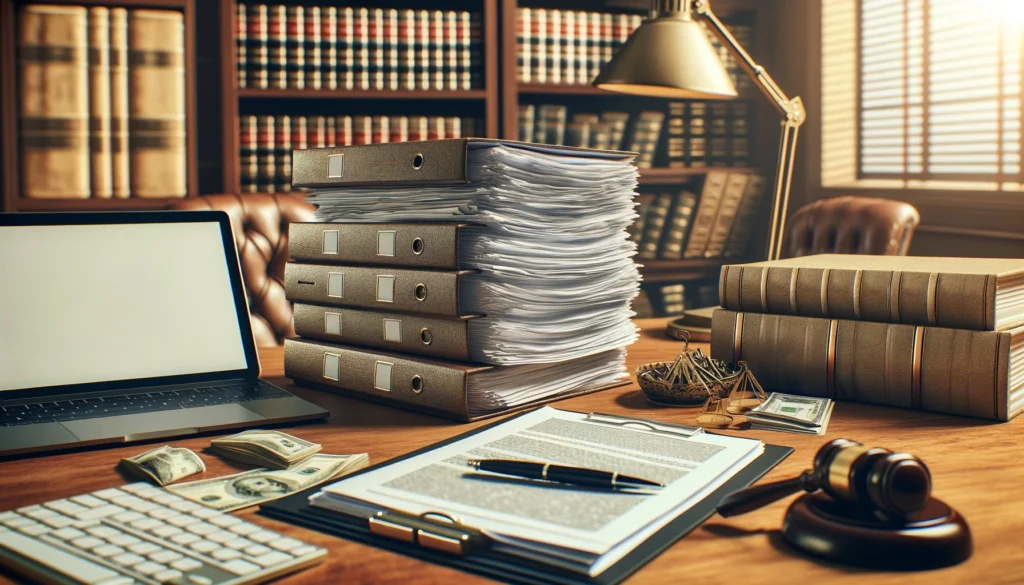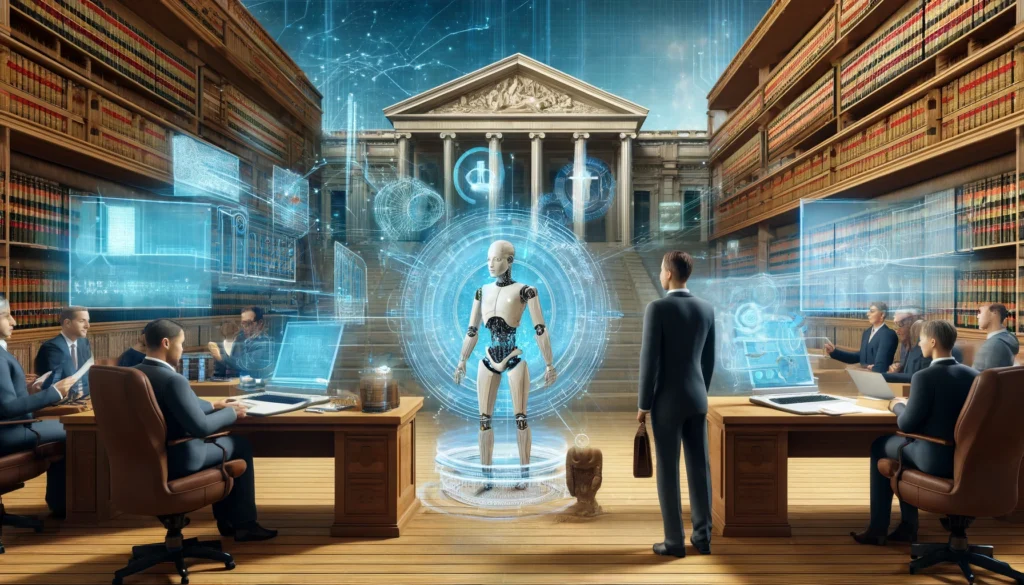
As a paralegal in a personal injury law firm, crafting compelling and well-substantiated demand letters is a critical task. These letters serve as the initial formal communication with the insurance company or opposing party, outlining the facts of the case, the damages incurred, and the compensation sought. Striking the right balance between persuasive argumentation and legal precision is essential to achieve favorable outcomes for your clients.
In this article, we’ll explore how to leverage the power of ChatGPT, an advanced language model, to streamline the process of drafting comprehensive demand letters in personal injury cases. By mastering the art of prompting, you’ll gain access to a powerful tool that can assist you in extracting relevant information, summarizing complex medical records, and generating compelling legal arguments tailored to your case.
Top 5 ChatGPT Prompts for Drafting Comprehensive Demand Letters
Case Summary and Argument Outline Prompt
You are a paralegal drafting a demand letter for a personal injury case. Based on the following case details, provide a concise summary of the incident, the injuries sustained, and the damages incurred:
[Insert relevant case details, including client information, incident description, medical treatment received, lost wages, and other damages]
Outline the key legal arguments and supporting evidence that should be presented in the demand letter to establish liability and justify the compensation sought. Highlight any mitigating or aggravating factors that may impact the case's strength or potential settlement value.This prompt template allows you to provide ChatGPT with the essential case details, and it will generate a structured outline highlighting the critical components to be included in the demand letter. By tailoring the case details, you can ensure the generated outline aligns with the specific requirements of each case, saving you valuable time and effort in the drafting process.
Medical Record Summarization Prompt
You are a paralegal working on a personal injury case. Summarize the key medical findings, diagnoses, and treatment plans from the following medical records:
[Insert relevant medical records, including doctor's notes, test results, and treatment plans]
Highlight any significant injuries, complications, or long-term implications that should be emphasized in the demand letter to support the claimed damages. Provide recommendations on how to present this medical information effectively and persuasively.Personal injury cases often involve voluminous medical records, making it challenging to extract relevant information efficiently. This prompt template enables you to feed ChatGPT with pertinent medical documents, and it will generate a concise summary, identify significant injuries or complications, and offer recommendations for presenting the medical information persuasively in the demand letter.
Liability Analysis Prompt
You are a paralegal drafting a demand letter for a personal injury case. Based on the following facts and evidence, analyze the liability of the parties involved and provide a well-reasoned argument supporting your client's position:
[Insert relevant facts, evidence, witness statements, and any applicable laws or legal principles]
Ensure your analysis addresses any potential counterarguments or defenses that may be raised by the opposing party. Provide recommendations on how to effectively refute these arguments and strengthen your client's case.Establishing liability is a crucial component of a successful demand letter. This prompt template allows you to provide ChatGPT with the relevant facts, evidence, and legal principles of the case. ChatGPT will then generate a comprehensive liability analysis, addressing potential counterarguments and defenses, and offering recommendations to reinforce your client’s position.
Damages Calculation Prompt
You are a paralegal tasked with calculating the damages claimed in a personal injury demand letter. Based on the following information, provide a detailed breakdown of the damages, including:
1. Medical expenses (past and future)
2. Lost wages
3. Pain and suffering
4. Loss of enjoyment of life
5. Any other applicable damages
[Insert relevant information, such as medical bills, wage statements, expert reports, and state-specific guidelines for calculating non-economic damages]
Ensure your calculations are well-supported and in line with relevant case law and legal precedents. Provide explanations and justifications for each component of the damages claimed.Accurately calculating and substantiating damages is a critical aspect of drafting an effective demand letter. This prompt template allows you to provide ChatGPT with the necessary information, such as medical bills, wage statements, and expert reports. ChatGPT will then generate a detailed breakdown of the claimed damages, ensuring calculations are well-supported and in line with relevant legal principles.
Demand Letter Review Prompt
You are a paralegal reviewing a draft demand letter for a personal injury case. Analyze the following letter and provide feedback on:
1. Clarity and persuasiveness of the arguments presented
2. Completeness and accuracy of the facts and evidence cited
3. Alignment with legal requirements and best practices
4. Suggestions for improvements or additional elements to consider
[Insert draft demand letter]
Provide a detailed assessment, highlighting specific sections or arguments that require attention, and offer recommendations for enhancing the letter's effectiveness and potential for a favorable settlement.Once you have a draft demand letter, this prompt template enables you to leverage ChatGPT’s analytical capabilities to review the document thoroughly. ChatGPT will assess the letter’s clarity, accuracy, and alignment with legal requirements, while also providing suggestions for improvement to enhance its persuasiveness and potential for a favorable settlement.
Adapting Prompts to Different Scenarios
While the provided prompt templates cover a range of common paralegal tasks related to drafting demand letters in personal injury cases, the true power lies in their versatility. By modifying the prompts to suit specific case requirements or legal contexts, you can tailor ChatGPT’s outputs to meet your diverse needs.
For instance, you can adapt the “Liability Analysis Prompt” to address various types of personal injury cases, such as slip and fall accidents, product liability claims, or medical malpractice cases. Simply modify the prompt by providing the relevant facts, evidence, and legal principles specific to the case type.
Additionally, the “Damages Calculation Prompt” can be extended to handle different types of damages, such as future medical expenses, loss of consortium, or punitive damages. By adjusting the prompt to reflect the specific damages claimed, you can leverage ChatGPT’s analytical capabilities to calculate and substantiate these damages accurately.
Embracing Advanced Prompting Techniques
As you gain experience with prompting ChatGPT, you can explore more advanced techniques to further refine and enhance its outputs. These techniques may include:
- Iterative Prompting: Engage in a dialogue with ChatGPT by providing follow-up prompts based on its initial responses. This iterative approach allows you to clarify ambiguities, request additional details, or refine the generated content until it meets your specific requirements.
- Context Framing: Provide ChatGPT with contextual information about the legal jurisdiction, relevant statutes, or case law to ensure its responses align with the appropriate legal framework.
- Output Formatting: Experiment with prompts that request specific output formats, such as bullet points, tables, or structured documents, to enhance readability and organization.
- Multi-task Prompting: Combine multiple tasks or objectives within a single prompt, enabling ChatGPT to generate comprehensive outputs that address various aspects of the demand letter simultaneously.
By continuously exploring and refining your prompting skills, you can unlock the full potential of ChatGPT and elevate your legal support capabilities to new heights.
Conclusion
Drafting comprehensive demand letters in personal injury cases is a critical responsibility for paralegals, and ChatGPT presents a powerful tool to streamline and enhance this process. By mastering the art of prompting and leveraging the versatile prompt templates provided in this guide, you can extract targeted information, summarize complex medical records, analyze liability, calculate damages, and review demand letters with greater efficiency and effectiveness.
Remember, the true power lies in adapting and customizing these prompts to suit specific case requirements and legal contexts. Embrace advanced prompting techniques, engage in iterative dialogues with ChatGPT, and continuously refine your skills to unlock its full potential.
As a paralegal in a personal injury law firm, staying ahead of the curve and embracing innovative technologies like ChatGPT can significantly enhance your ability to provide exceptional legal support. Share this guide within your professional circles, collaborate with colleagues, and collectively elevate the standards of paralegal services in personal injury litigation.


